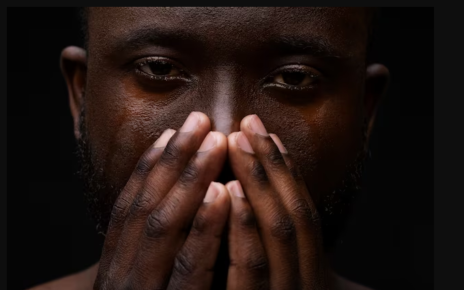Michael Ngige, a man whose striking resemblance to Kenya’s first president, Mzee Jomo Kenyatta, has captivated public attention, has shared his compelling reasons for leaving Kenya and starting a new life in the United States. His story is one of a profound search for identity and belonging, a journey marked by personal struggles, family tensions, and a quest for answers.
Born at Pumwani Maternity Hospital in Nairobi and raised in the city’s Jericho neighborhood, Ngige’s life has been shadowed by questions about his parentage. From a young age, friends and acquaintances couldn’t help but notice his uncanny resemblance to Mzee Jomo Kenyatta, sparking curiosity and speculation about his biological father. This resemblance, however, was more than a casual observation; it became a source of deep personal conflict.
Ngige’s inquiries into his paternal lineage were met with hostility, particularly from his mother, who maintained a tight-lipped silence on the subject. This lack of transparency only deepened the mystery surrounding his parentage and strained his relationship with his mother. The tension between them was not merely emotional but also physical. Ngige recalls a particularly traumatic incident, saying, “When I asked her about my father, she struck me so hard that I collided with the wall and saw stars.” Such encounters left Ngige with both psychological and physical scars, fueling his determination to seek answers and ultimately distance himself from the unresolved turmoil of his family life.
The absence of a father figure and the harsh treatment he endured at home became a driving force behind his decision to leave Kenya. In 2012, amid a backdrop of political unrest, Ngige moved to the United States. The move was not just a geographical shift but an attempt to escape the unanswered questions of his past and the painful memories associated with them.
In the US, Ngige initially sought refuge in a church and took up work in food delivery. These early years were marked by struggle and adaptation as he worked to build a new life in an unfamiliar environment. Over time, he transitioned into the local excursions industry, establishing a new identity and a semblance of stability in his new home.
However, even across continents, the intrigue surrounding his resemblance to Jomo Kenyatta followed him. In the United States, Ngige continued to be mistaken for the iconic Kenyan leader, a situation that added a complex layer to his search for identity. Despite the distance, his likeness to Kenyatta remained a topic of conversation, even drawing the attention of notable Kenyan figures. For instance, former Prime Minister Raila Odinga once humorously remarked on Ngige’s likeness to Kenyatta, jokingly suggesting a possible reincarnation.
Ngige’s journey is one of resilience and self-discovery. His decision to leave Kenya and start anew in the United States reflects a deep-seated need to escape the shadows of his past and carve out his own identity, free from the unresolved mysteries and familial tensions that once defined his life. Yet, even as he builds a new life in a foreign land, the echoes of his past and his striking resemblance to a national icon continue to shape his journey.



